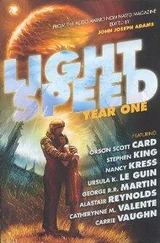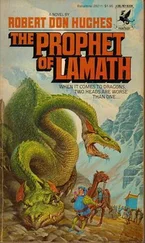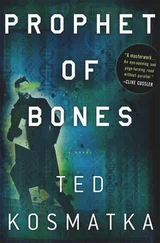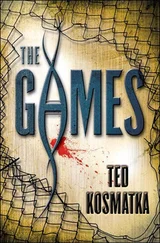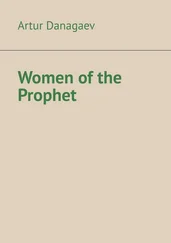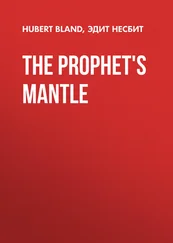Ted Kosmatka - The Prophet of Flores
Здесь есть возможность читать онлайн «Ted Kosmatka - The Prophet of Flores» весь текст электронной книги совершенно бесплатно (целиком полную версию без сокращений). В некоторых случаях можно слушать аудио, скачать через торрент в формате fb2 и присутствует краткое содержание. Год выпуска: 2007, Издательство: Asimov's Science Fiction, September 2007, Жанр: Альтернативная история, на английском языке. Описание произведения, (предисловие) а так же отзывы посетителей доступны на портале библиотеки ЛибКат.
- Название:The Prophet of Flores
- Автор:
- Издательство:Asimov's Science Fiction, September 2007
- Жанр:
- Год:2007
- ISBN:нет данных
- Рейтинг книги:5 / 5. Голосов: 1
-
Избранное:Добавить в избранное
- Отзывы:
-
Ваша оценка:
- 100
- 1
- 2
- 3
- 4
- 5
The Prophet of Flores: краткое содержание, описание и аннотация
Предлагаем к чтению аннотацию, описание, краткое содержание или предисловие (зависит от того, что написал сам автор книги «The Prophet of Flores»). Если вы не нашли необходимую информацию о книге — напишите в комментариях, мы постараемся отыскать её.
The Prophet of Flores — читать онлайн бесплатно полную книгу (весь текст) целиком
Ниже представлен текст книги, разбитый по страницам. Система сохранения места последней прочитанной страницы, позволяет с удобством читать онлайн бесплатно книгу «The Prophet of Flores», без необходимости каждый раз заново искать на чём Вы остановились. Поставьте закладку, и сможете в любой момент перейти на страницу, на которой закончили чтение.
Интервал:
Закладка:
“Do you think something will?”
“No,” Gavin said. Then, “I don’t know.”
Paul fingered the sat phone, a dark block of plastic the size of a shoe. “What are you worried about?”
“To be honest, bringing you here has brought attention we weren’t ready for. I received a troubling call today. So far, we’ve shuffled under the radar, but now … now we’ve flown in an outside tech, and people want to know why.”
“What people?”
“Official people. Indonesia is suddenly very interested.”
“Are you worried they’ll shut down the dig?”
Gavin smiled. “Have you studied theology?
“Why?” “I’ve long been fascinated by the figure of Abraham. Are you familiar with Abraham?”
“Of course,” Paul said, unsure where this was going.
“From this one sheepherder stems the entire natural history of monotheism. He’s at the very foundation of all three Abrahamic faiths—Judaism, Christianity, and Islam. When Jews, Christians, and Muslims get on their knees for their One True God, it is to Abraham’s God they pray.” Gavin closed his eyes. “And still there is such fighting over steeples.”
“What does this have to do with the dig?”
“The word ‘prophet’ comes from the Greek, prophetes. In Hebrew, the word is nabi . I think Abraham Heschel said it best when he wrote ‘the prophet is the man who feels fiercely.’ What do you think, Paul? Do you think prophets feel fiercely?”
“Why are you asking me this?”
“Oh, never mind.” Gavin smiled again and shook his head. “It’s just the rambling of an old man.”
“You never answered whether you thought they’d shut down the dig.”
“We come onto their land, their territory; we come into this place and we find bones that contradict their beliefs; what do you think might happen? Anything.”
“Contradict their beliefs?” Paul said. “What do you believe about these bones? You’ve never said.”
“I don’t know. They could be pathological.”
“That’s what they said about the first Neanderthal bones. Except they kept finding them.”
“It could be microcephaly.”
“What kind of microcephaly makes you three feet tall?”
“The odd skull shape and small body-size could be unrelated. Pygmies aren’t unknown to these islands.”
“There are no pygmies this small.”
“But perhaps the two things together … perhaps the bones are a microcephalic representation of…” his voice trailed off. Gavin sighed. He looked suddenly defeated.
“That’s not what you believe, is it?” Paul said.
“These are the smallest bones discovered that look anything like us. Could they just be pathological humans? I don’t know. Maybe. Pathology could happen anywhere, so we can’t rule it out when we’ve only got a few specimens to work with. But what my mind keeps coming back to is that these bones weren’t found just anywhere.”
“What do you mean?”
“These bones weren’t found in Africa, or Asia. These tiny bones were found on a tiny island. Near the bones of dwarf elephants. And that’s a coincidence? They hunted dwarf elephants, for God’s sake.”
“So if not pathological, what do you believe they were? You still haven’t said.”
“That’s the powerful thing about genetics, my friend. One does not have to believe. One can know. And that’s precisely what is so dangerous.”
“Strange things happen on islands.” Margaret’s white shirt was gone. She sat slick-armed in overalls. Skin like a fine coat of gloss. The firelight beat the night back, lighting candles in their eyes. It was nearly midnight, and the researchers sat in a circle, listening to the crackle of the fire. Listening to the jungle.
“Like the Galбpagos,” she said. “The finches.”
“Oh come on,” James said. “The skulls we found are small, with brains the size of chimps. Island dwarfing of genus Homo ; is that what you’re proposing? Some sort of local adaptation over the last five thousand years?”
“It’s the best we have.”
“Those bones are too different. They’re not of our line.”
“But they’re younger than the other archaics. It’s not like erectus , some branch cut down at the dawn of time. These things survived here for a long time. The bones aren’t even fossilized.”
“It doesn’t matter, they’re still not us. Either they share common descent from Man, or they were a separate creation at the beginning. There is no in-between. And they’re only a meter tall, don’t forget.”
“That’s just an estimate.”
“A good estimate.”
“Achondroplasia—”
“Those skulls are as achondroplastic as I am. I’d say the sloped frontal bone is anti -achondroplastic.”
“Some kind of growth hormone deficiency would—”
“No,” Paul said, speaking for the first time. Every face turned toward him.
“No, what?”
“Pygmies have normal growth hormone levels,” Paul said. “Every population studied—the negritos, the Andaman, the Congolese. All normal.”
The faces stared. “It’s the circulating domain of their receptors that are different,” Paul continued. “Pygmies are pygmies because of their GH receptors, not the growth hormone itself. If you inject a pygmy child with growth hormone, you still get a pygmy.”
“Well still,” Margaret said. “I don’t see how that impacts whether these bones share common descent or not.”
James turned to the circle of faces. “So are they on our line? Are they us, or other?”
“Other.” “Other.”
“Other.”
Softly, the girl whispered in disbelief, “But they had stone tools.”
The faces turned to Paul, but he only watched the fire and said nothing.
The next morning started with a downpour. The dig team huddled in tents, or under the tarped lean-to near the fire pit. Only James braved the rain, stomping off into the jungle. He was back in an hour, smiling ear to ear.
“Well, will you look at that,” James said, holding something out for Paul to see.
“What is it?”
“Partially eaten monitor. A species only found here.”
Paul saw now that it was a taloned foot that James held. “That’s a big lizard.”
“Oh, no. This was just a juvenile. Mother nature is odd this side of the Wallace line. Not only are most of the species on this side not found anywhere else. A lot of them aren’t even vaguely related to anything else. It’s like God started from scratch to fill all the niches.”
“How’d you get interested in herpetology?” Paul asked.
“By His creations shall ye know God.”
“McMaster mentioned a dwarf elephant.”
“Yeah, stegadon. They’re extinct now, though.”
“What killed them off ?”
“Same thing that killed off a lot of the ancient fauna on the island. Classic catastophism, a volcanic eruption. We found the ash layer just above the youngest bones.”
Once, lying in bed with a woman, Paul had watched the moon through the window. The woman traced his scars with her finger.
“Your father was brutal.”
“No,” Paul had said. “He was broken, that’s all.”
“There’s a difference?”
“Yeah.”
“What?”
“He was always sorry afterward.”
“That mattered?”
“Every single time.”
A: Incidences of local adaptation have occurred, sure. Populations adapt to changing conditions all the time.
Q: Through what process?
A: Differential reproductive success. Given genetic variability, it almost has to happen. It’s just math and genes. Fifty-eight hundred years is a long time.
Интервал:
Закладка:
Похожие книги на «The Prophet of Flores»
Представляем Вашему вниманию похожие книги на «The Prophet of Flores» списком для выбора. Мы отобрали схожую по названию и смыслу литературу в надежде предоставить читателям больше вариантов отыскать новые, интересные, ещё непрочитанные произведения.
Обсуждение, отзывы о книге «The Prophet of Flores» и просто собственные мнения читателей. Оставьте ваши комментарии, напишите, что Вы думаете о произведении, его смысле или главных героях. Укажите что конкретно понравилось, а что нет, и почему Вы так считаете.


